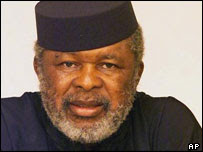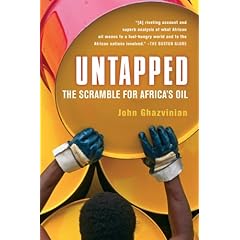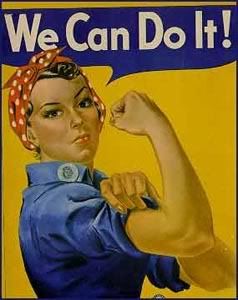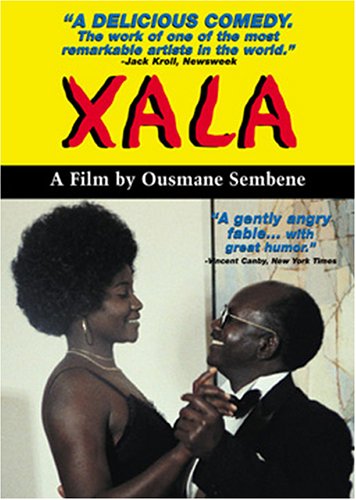The last section of this book is titled appropriately, "Consequences." It was Serah's story in particular that laid this out.
"Sometimes I think this is what happened to our country. Nobody heeded the warnings, nobody smelled the rain coming, or saw the lights in the sky or heard the roar of thunder, until we were all engulfed by it."
Serah was invovled with the voting and political aspects of Sierra Leone. She watched as political leaders rose and fell and were replaced the next day with a new young President.
1992 - President Joseph Momoh ousted in military coup led by Captain Valentine Strasser,
apparently frustrated by failure to deal with rebels. Under international pressure, Strasser announces plans for the first multi-party elections since 1967.

1996 - Ahmad Tejan Kabbah elected president in February, signs peace accord with Sankoh's rebels in November.
1997 - Peace deal unravels. President Kabbah deposed by army in May. Major Johnny Paul Koroma, in prison awaiting the outcome of a treason trial, leads the military junta - the Armed Forces Revolutionary Council (AFRC). Koroma suspends the constitution, bans demonstrations and abolishes political parties.
Kabbah flees to Guinea to mobilise international support.
1998 February - Nigerian-led West African intervention force Ecomog storms Freetown and drives rebels out.
1998 March - Kabbah makes a triumphant return to Freetown amid scenes of public rejoicing.
1999 January - Rebels backing Revolutionary United Front leader Foday Sankoh seize parts of Freetown from Ecomog. After weeks of bitter fighting they are driven out, leaving behind 5,000 dead and a devastated city.
1999 May - A ceasefire is greeted with cautious optimism in Freetown amid hopes that eight years of civil war may soon be over.
1999 July - Six weeks of talks in the Togolese capital, Lome, result in a peace agreement, under which the rebels receive posts in government and assurances they will not be prosecuted for war crimes.
1999 November/December - UN troops arrive to police the peace agreement
2000 May - Rebels close in on Freetown; 800 British paratroopers sent to Freetown to evacuate British citizens and to help secure the airport for UN peacekeepers; rebel leader Foday Sankoh captured.
2000 August - Eleven British soldiers taken hostage by a renegade militia group called the West Side Boys.
2001 January - Government postpones presidential and parliamentary elections - set for February and March - because of continuing insecurity.
2001 March - UN troops for the first time begin to deploy peacefully in rebel-held territory.
2001 May - Disarmament of rebels begins, and British-trained Sierra Leone army starts deploying in rebel-held areas.
2002 January - War declared over.
2002 May - Kabbah wins a landslide victory in elections. His Sierra Leone People's Party secures a majority in parliament.
2002 July - British troops leave Sierra Leone after their two-year mission to help end the civil war.
2004 February - Disarmament and rehabilitation of more than 70,000 civil war combatants officially completed.
2004 May - First local elections in more than three decades.
2005 December - The last UN peacekeeping troops leave Sierra Leone, marking the end of a five-year mission to restore order.
2006 August - Date for elections set for July 2007.
2007 August - Presidential and parliamentary polls. Ernest Bai Koroma wins the presidency and his All People's Congress, formerly in opposition, wins a majority in parliament.
 *The picture has a link too! Its the Absence of Violence in Sierra Leone from 1996-2007
*The picture has a link too! Its the Absence of Violence in Sierra Leone from 1996-2007
I cut some of the dates out because it was just too long. But this timeline was eyepopping! I mean that much destruction and turmoil lasting for over 10 years! Also the end of the timeline doesn't even stop at 2007, which means the country is still in a mess. I did some more research on Sierra Leone and this is what I found:

Reflections on the 1996 Sierra Leone Peace Accord
by Yusuf Bangura
"The signing of the peace accord in Abidjan (Côte d’Ivoire) on 30 November 1996 between the government of Sierra Leone and the Revolutionary United Front (RUF) marked the official ending of Sierra Leone’s five and a half years of war. The war, which ravaged much of the countryside, killed more than 20,000 civilians and left hundreds of innocent bystanders maimed and traumatized. It also displaced almost one and a half million people from their homes and livelihoods, orphaned thousands of young children, and imposed financial and social burdens on much of the relatively stable population. One major consequence of the war, which post-war reconstruction efforts will have to tackle very quickly and decisively, was the transformation of the country from a predominantly rural society into pockets of dense urban settlements. Medium-sized provincial towns such as Bo, Kenema, Makeni and Koidu suddenly became large urban settlements as villagers sought refuge in them. And the capital, Freetown, could well have grown from a pre-war population of roughly half a million people to one million—if not more."
This paper details the events leading up to the Peace Accord as well as what followed after. Ancestor Stones detailed a little of the turmoil happening in Seirra Leone with Serah's story, but after this new information I learned, I am surprised this character even left her house admist this horrible war. I didn't fathom the consequences she would have to deal with if things got out of hand. Her and her friend, plus any of the citizens that showed up that day to vote could have been killed point blank. And that is exactly what happened to most of the people during those times.
 This amazing stories brought up a lot of questions and interesting topics about Nigeria and the horrible history it has. I really liked the writing and how the story of Nigeria was told so I did some research on Helon Habila to see what I could come up with.
This amazing stories brought up a lot of questions and interesting topics about Nigeria and the horrible history it has. I really liked the writing and how the story of Nigeria was told so I did some research on Helon Habila to see what I could come up with. There were some themes to the book that I thought were very depressing and sad. For example the book starts in a prison cell with Lomba a seemingly innocent writer. It then moves to earlier history about a student who drops out of school, his closest friend loses his sanity in front of him, the terror the military brings, his novel never being finished and losing a woman to another man. This storyline spells out s-u-i-c-i-d-e! But not to worry there are undertones to this book that keeps the story moving and people from jumping out windows when they are finished reading it.
There were some themes to the book that I thought were very depressing and sad. For example the book starts in a prison cell with Lomba a seemingly innocent writer. It then moves to earlier history about a student who drops out of school, his closest friend loses his sanity in front of him, the terror the military brings, his novel never being finished and losing a woman to another man. This storyline spells out s-u-i-c-i-d-e! But not to worry there are undertones to this book that keeps the story moving and people from jumping out windows when they are finished reading it. My favorite character of the book had to be Aunt Rachael. In the beginning you see her as a compassionate aunt who takes her nephew in after his dad kicks him out. She feeds him and gives him a tutor for nothing. But later in the story we see her slipping, she begins drinking more heavily, and having more frequent outbursts. I don't blame her however, if someone left me like that I would be pretty depressed too. But! She is an amazing woman and bounces back. When Habila described her turning around I couldn't stop smiling. I thought of all the strong women in my life and all the women who have been through the same thing. Habila really captured the essence of womanhood and overcoming obstacles.
My favorite character of the book had to be Aunt Rachael. In the beginning you see her as a compassionate aunt who takes her nephew in after his dad kicks him out. She feeds him and gives him a tutor for nothing. But later in the story we see her slipping, she begins drinking more heavily, and having more frequent outbursts. I don't blame her however, if someone left me like that I would be pretty depressed too. But! She is an amazing woman and bounces back. When Habila described her turning around I couldn't stop smiling. I thought of all the strong women in my life and all the women who have been through the same thing. Habila really captured the essence of womanhood and overcoming obstacles. 















